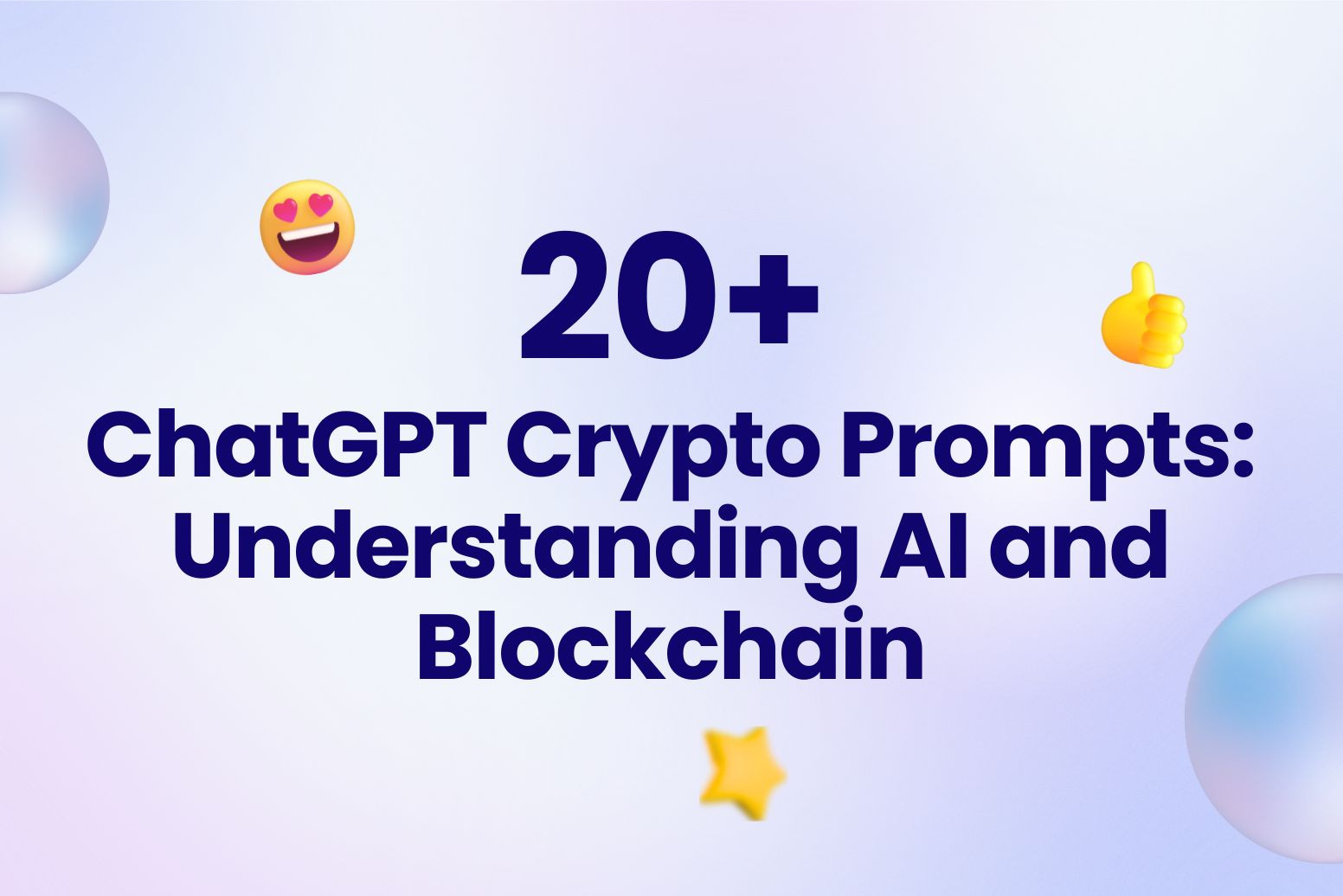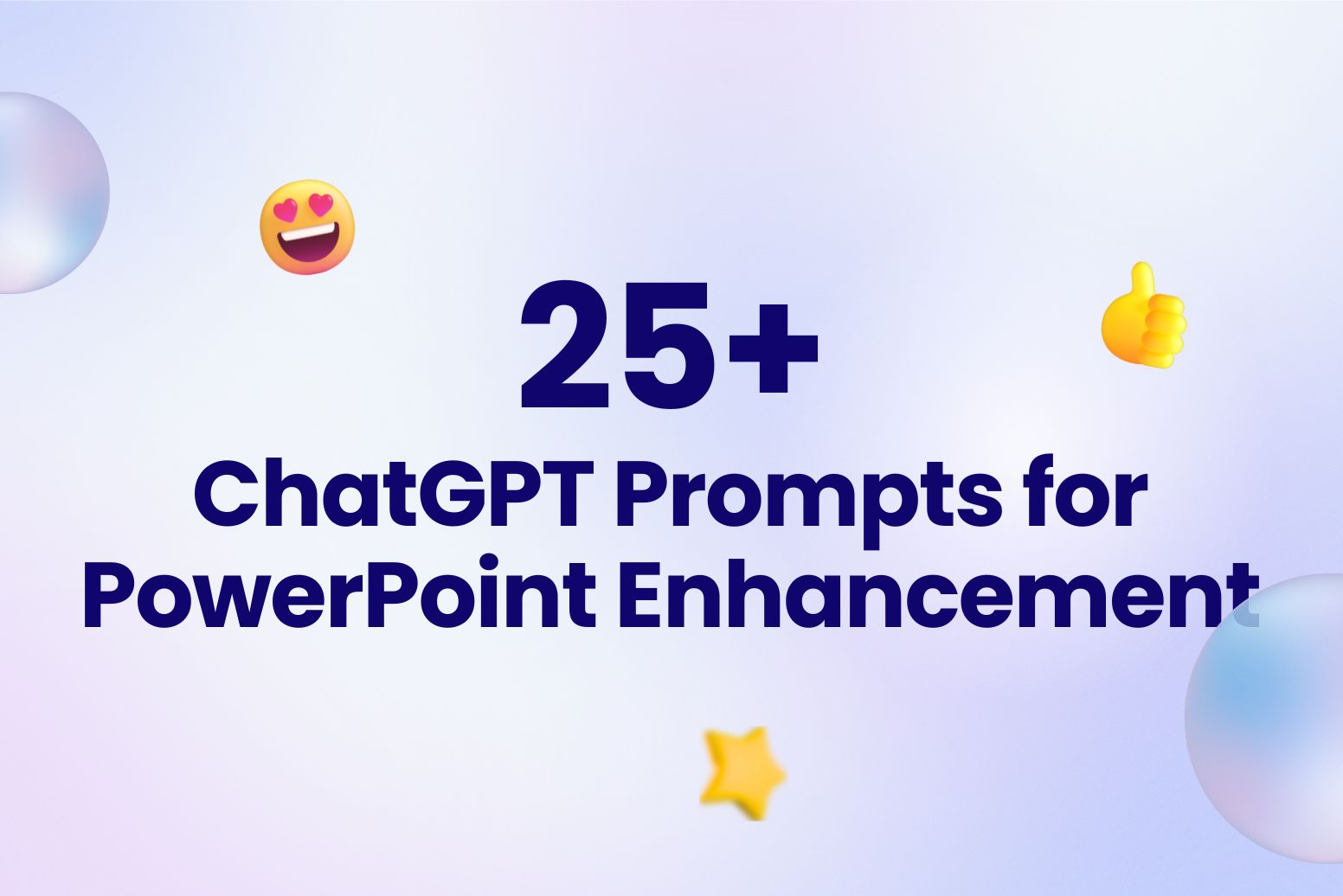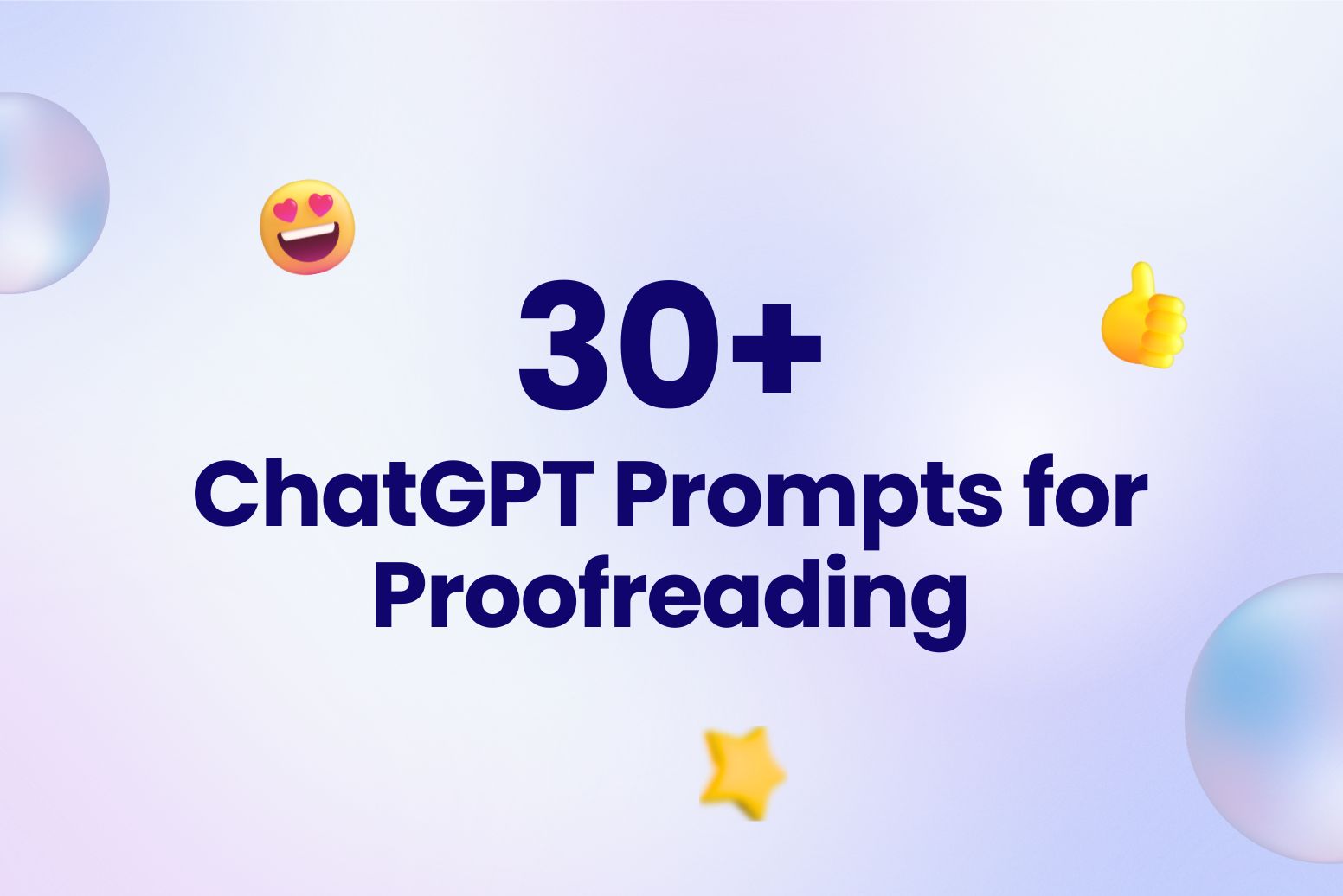Are you seeking to enhance your skills and strategy in the world of crypto trading? Look no further than these 100+ ChatGPT Crypto prompts! This extensive compilation of prompts is intended to furnish traders with valuable insights and concepts that can aid in making well-informed decisions.
As technology continues to advance, the intersection of artificial intelligence and blockchain technology is becoming increasingly important. One notable example is ChatGPT, an AI chatbot created by OpenAI that has the ability to generate articles, code, and provide explanations on any topic, including cryptocurrencies and blockchain technology.
This article is listing the best ChatGPT crypto prompts.
How can ChatGPT help with trading?
ChatGPT has the ability to furnish traders with up-to-date market data and news updates, in addition to analyzing market trends and patterns with ChatGPT crypto prompts. Utilizing ChatGPT crypto prompts, traders can make informed decisions on when to buy or sell and how to adjust their investment strategies to account for market fluctuations.
What are the best crypto prompts?
- What is cryptocurrency and how does it work?
- What are the key differences between cryptocurrencies and traditional currencies?
- How are cryptocurrencies created and how do they maintain their value?
- Can you explain blockchain technology and its role in cryptocurrencies?
- What are the most popular cryptocurrencies and what sets them apart from each other?
- How can I safely store and manage my cryptocurrencies?
- What is the process of buying and selling cryptocurrencies?
- What are the advantages and disadvantages of using cryptocurrencies?
- Can you explain the concept of decentralization in the context of cryptocurrencies?
- How do smart contracts work and how are they related to cryptocurrencies?
- What are some common use cases for cryptocurrencies beyond just transactions?
- What are the risks associated with investing in cryptocurrencies?
- Can you explain the concept of mining in relation to cryptocurrencies?
- What is a cryptocurrency wallet and what types are available?
- What are the most important factors to consider when choosing a cryptocurrency exchange?
- What are the tax implications of using and investing in cryptocurrencies?
- Can you explain how Initial Coin Offerings (ICOs) work and their role in the crypto ecosystem?
- What is the difference between a public and private blockchain?
- How do cryptocurrency transactions work and how long do they take to process?
- What are cryptocurrency forks and why do they happen?
- What are some popular crypto-related terms, like “HODL” and “FOMO”?
- What is DeFi (Decentralized Finance) and how does it relate to cryptocurrencies?
- What are NFTs (Non-Fungible Tokens) and what role do they play in the crypto world?
- What are the environmental concerns surrounding cryptocurrency mining, and what are some potential solutions?
- What is the future outlook for cryptocurrencies and how might they impact the global economy?
- What are the latest developments in Layer-2 scaling solutions for cryptocurrencies?
- How do cross-chain bridges work and what role do they play in the crypto ecosystem?
- What are the key differences between proof-of-work, proof-of-stake, and other consensus mechanisms?
- Can you explain how sharding works and its impact on blockchain scalability?
- What are some innovative use cases of smart contracts in various industries?
- What are the challenges and opportunities presented by central bank digital currencies (CBDCs)?
- How does the Lightning Network work and what impact does it have on Bitcoin transactions?
- Can you discuss the role of oracles in decentralized finance (DeFi) and their potential vulnerabilities?
- What are some advanced trading strategies used by professional cryptocurrency traders?
- How do zero-knowledge proofs work and how do they contribute to privacy in cryptocurrency transactions?
- What are the emerging trends in the regulation of cryptocurrencies and digital assets?
- How do tokenized assets work, and what potential benefits do they offer for traditional financial markets?
- What are some common cybersecurity threats faced by cryptocurrency users and how can they be mitigated?
- How do decentralized autonomous organizations (DAOs) work and what are some real-world examples?
- What are the best practices for securely storing and managing cryptocurrency holdings?
- How can I develop a disciplined and well-researched approach to investing in cryptocurrencies?
- What are the key factors to consider when choosing a reputable and secure cryptocurrency exchange?
- How can I effectively diversify my cryptocurrency portfolio to manage risk and optimize returns?
- What are the best practices for managing and securing private keys to prevent loss or theft?
- How can I stay informed about the latest developments and trends in the cryptocurrency space?
- What are the best practices for participating in Initial Coin Offerings (ICOs) or other token sales?
- How can I develop a risk management strategy for trading or investing in cryptocurrencies?
- What are the key factors to consider when evaluating the potential of a cryptocurrency project or investment?
- How can I ensure compliance with local regulations and tax requirements when dealing with cryptocurrencies?
- What are the best practices for using decentralized finance (DeFi) platforms safely and responsibly?
- How can I avoid common trading mistakes and develop a systematic approach to trading cryptocurrencies?
- What are some effective strategies for managing the emotional aspects of investing in the volatile cryptocurrency market?
- How can I assess the security and trustworthiness of cryptocurrency wallets and choose the right one for my needs?
- What are the best practices for using two-factor authentication (2FA) and other security measures in the crypto space?
- How can I contribute to the crypto community in a meaningful and responsible way?
- What are some ways to ensure that I stay up-to-date with accurate and reliable information in the fast-paced crypto world?
- How can I identify and avoid potential scams and fraud in the cryptocurrency market?
- What are the best practices for navigating the world of non-fungible tokens (NFTs) responsibly and securely?
- How can I approach the process of staking cryptocurrencies while minimizing risk and maximizing rewards?
- What are the best practices for managing my cryptocurrency investments during periods of market volatility?
- How can I ensure that my interactions with smart contracts are safe and secure?
- What are the best practices for evaluating the merits of different blockchain networks and their respective use cases?
- How can I responsibly participate in cryptocurrency mining, considering factors like energy efficiency and environmental impact?
- What are the best practices for staying engaged with the crypto community and learning from experienced peers and experts?
- Can you explain the role of stablecoins in the cryptocurrency market and their various types?
- What is the significance of on-chain analytics and how can they help investors make informed decisions?
- How do liquidity pools work in decentralized exchanges and what are the associated risks?
- Can you explain the concept of yield farming and its role in DeFi?
- What are some recent innovations in privacy-focused cryptocurrencies and how do they work?
- How does token burning work and what impact does it have on the supply and value of a cryptocurrency?
- What are the key factors that contribute to the success or failure of a cryptocurrency project?
- How do flash loans work, and what are their potential use cases and risks in the DeFi ecosystem?
- What is the role of crypto index funds and how do they differ from traditional index funds?
- How do automated market makers (AMMs) work and what advantages do they offer over traditional order-book exchanges?
- Can you discuss the concept of composability in the context of DeFi?
- What are some interesting use cases of NFTs in fields beyond digital art and collectibles?
- How do cryptocurrency derivatives work, and what types of derivatives are available in the market?
- What are the different types of blockchain interoperability and how do they benefit the overall ecosystem?
- How do synthetic assets work, and what role do they play in DeFi?
- What are some innovative ways that blockchain technology is being used for social impact?
- Can you explain tokenomics and its importance in the success of a cryptocurrency project?
- How do governance tokens work and what role do they play in decentralized platforms?
- What are some emerging trends in cryptocurrency custody and institutional-grade storage solutions?
- How do decentralized identity solutions work and what benefits do they offer over traditional identity systems?
- What are the key differences between various Layer-1 blockchains and their intended use cases?
- How does the Ethereum 2.0 upgrade impact the Ethereum ecosystem, and what are its key features?
- Can you discuss the concept of cryptoeconomics and how it relates to blockchain networks?
- How do state channels work and what role do they play in scaling blockchain networks?
- What are some common methods for valuing cryptocurrencies and assessing their long-term potential?
- How do fractionalized NFTs work and what are their potential use cases?
- What are the key differences between various decentralized finance (DeFi) platforms and their respective protocols?
- Can you discuss the role of sidechains in the cryptocurrency ecosystem and how they help with scalability?
- How does the Taproot upgrade affect Bitcoin’s functionality, and what are its key features?
- What are some emerging trends in tokenization, such as real estate, art, and intellectual property?
- How do prediction markets work in the context of blockchain technology and cryptocurrencies?
- Can you explain the concept of staking derivatives and their potential impact on the DeFi ecosystem?
- What are the key differences between permissioned and permissionless blockchains, and what are their ideal use cases?
- How do various consensus algorithms impact the energy efficiency and environmental footprint of blockchain networks?
- Can you discuss the evolution of decentralized exchanges (DEXs) and the key factors driving their growth?
- What are some potential ways that the integration of Internet of Things (IoT) and blockchain technology can revolutionize industries?
- What are the most common mistakes made by beginners in the crypto space, and how can they be avoided?
- How can I avoid falling victim to cryptocurrency scams and phishing attacks?
- What strategies can I use to minimize the risk of loss when trading or investing in cryptocurrencies?
- How can I ensure the security of my private keys and avoid losing access to my crypto assets?
- What are the best practices for choosing a reliable and secure cryptocurrency exchange?
- How can I avoid making emotional trading decisions and falling prey to FOMO (fear of missing out)?
- What are some common portfolio management mistakes in crypto investing and how can they be avoided?
- How can I avoid overexposure to a single cryptocurrency or asset class in my investment portfolio?
- How do I recognize and avoid potential pump-and-dump schemes in the cryptocurrency market?
- What are some best practices for securely storing and managing my cryptocurrency holdings?
- How can I avoid making impulsive investment decisions based on hype and misinformation in the crypto space?
- What are some common tax-related mistakes when dealing with cryptocurrencies, and how can they be avoided?
- How can I avoid making mistakes related to cryptocurrency forks and token migrations?
- What are the best ways to keep up with accurate and reliable news and information in the crypto space?
- How can I avoid common mistakes when participating in Initial Coin Offerings (ICOs) or other token sales?
- What are some best practices for managing risk when using decentralized finance (DeFi) platforms?
- How can I avoid common mistakes when using cryptocurrency wallets and selecting the right type for my needs?
- How do I ensure compliance with local regulations when trading or investing in cryptocurrencies?
- How can I avoid overtrading and incurring unnecessary fees in the cryptocurrency market?
- What are some common mistakes related to margin trading in cryptocurrencies, and how can they be avoided?
- How can I avoid making poor investment decisions based on price predictions or market analysis from unreliable sources?
- What are some strategies for avoiding the pitfalls of “crypto tribalism” and maintaining a balanced perspective on different projects?
- How can I avoid the risks associated with using smart contracts, and what precautions should I take?
- What are some common misconceptions about cryptocurrencies, and how can I avoid falling for them?
- How can I develop a disciplined approach to investing and trading in the cryptocurrency market to minimize mistakes?
FAQ about ChatGPT Crypto Prompts
Q: Is the information ChatGPT provides about crypto trustworthy?
A: ChatGPT’s crypto information should generally be taken as a starting point for further research, not taken at face value. Human fact-checking and interpretation are still needed. If you can input right ChatGPT crypto prompts, you can get reliable answers.
Q: What is the prediction for the ChatGPT token?
A: Investors will not want to miss the opportunity to get the token during its early stages, as ChatGPT predicts a massive explosion in its value that will bring it to $1.5 at launch.
The launch of a new cryptocurrency token is a multifaceted and demanding undertaking that necessitates meticulous planning and a competent team to execute it. It is critical to be cognizant of the regulatory landscape surrounding cryptocurrencies in your jurisdiction and to guarantee that your token adheres to all relevant laws and regulations.
As you explore the world of crypto, take advantage of the best ChatGPT crypto prompts available to enhance your understanding and make informed decisions.






